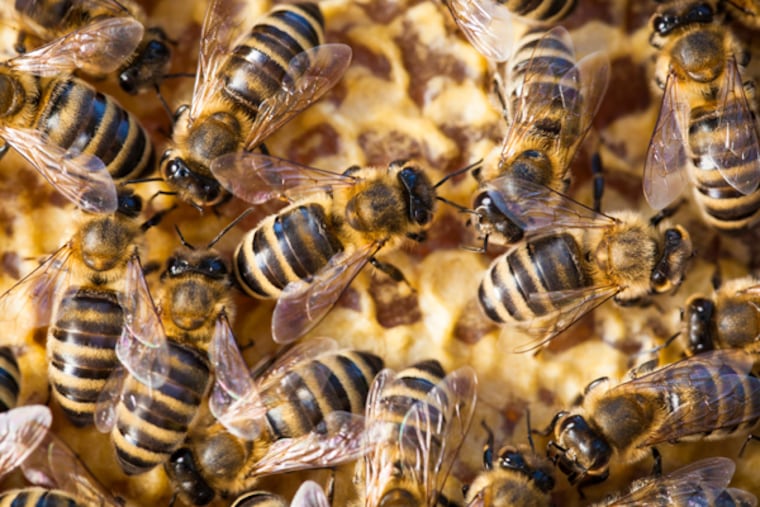Your Place: Noise may be bees or wasps
Question: I moved into my home, a three-story brick twin in Roxborough, in July 2006. Since the spring of 2011, I've heard a vibrating, buzzing noise coming from the back corner of the rear bedroom ceiling.

Question: I moved into my home, a three-story brick twin in Roxborough, in July 2006.
Since the spring of 2011, I've heard a vibrating, buzzing noise coming from the back corner of the rear bedroom ceiling.
Although the noise is loud at times, it stops during cold weather months and resumes each spring when the weather warms.
On raw and damp days during the spring and the fall, I sometimes do not hear the noise at all. It always returns when temperatures warm up again.
An exterminator has checked three times for any insect activity along the back and side walls of the house but has found nothing.
Although no one, including myself, has seen any evidence of bees being the problem, the representative of the termite exterminator I use suggested I purchase a contract to have my home treated for bee infestation.
The exterminator would spread toxic powder along the outside of my home to combat the infestation.
What do you think?
Answer: Harris Gross, of Engineers for Home Inspection in Cherry Hill, says you are on the right track with bees or wasps.
"The observations you made regarding when these buzzing noises occur was critical to identify the issue," Gross said.
"Often, paper or mud wasp nests are found in attics, and considering that the noise resumes in the warmer months and stops in the colder months, it's clear the issue is related to bees or wasps," he said.
"There is no component of the home that would have a similar pattern, with the possible exception of an attic fan, which you did not mention that you had," Gross said.
"I would suggest standing outside in the back on a day you hear the buzzing and looking for where the wasps enter and leave their nest," he said.
Often, attics in brick twins are difficult to access physically, so the fact that an exterminator was not able to see the wasp nest is not surprising, according to Gross.
"I would suggest extermination and then sealing up the opening where the wasps access the attic," he said.